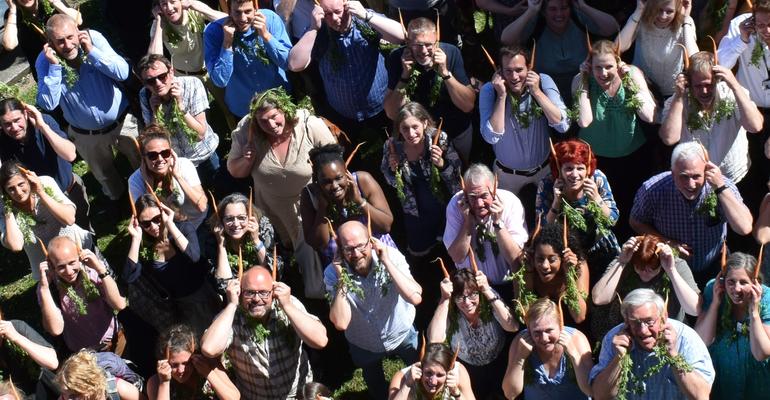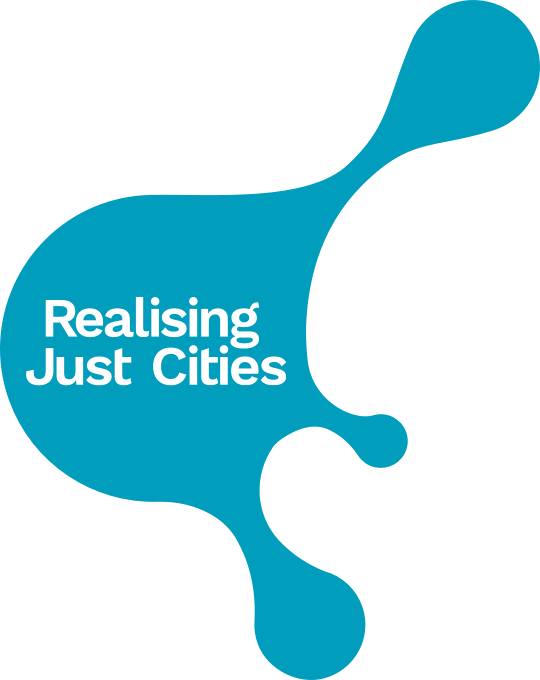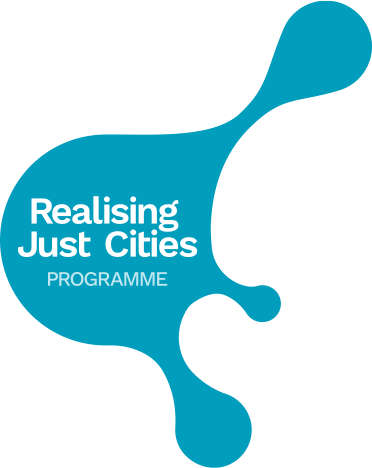Collaborating for fairer food futures: Sustainable Food Cities conference 2018

Author: Charlie Spring, 19th July 2018
Just a couple of days into my new role assisting the SAFE projectin its effort to facilitate the co-production of digital infrastructures to support collaborative and connective urban food transformations, I arrived at the Sustainable Food Cities (SFC) conference at Cardiff City Hall on 26thJune full of curiosity around how other UK cities are tackling the dual complexities of food system injustice and cross-sectoral working. SFC is a multi-organisational programme supporting urban areas to form partnerships to deliver positive change across six key food system issues. It thus takes part in broader shifts towards municipality-led change to counter the buck-passing of blaming consumer choice, Westminster cuts, global corporations and so on for a “food sector worth £100 billion each year but whose vast hidden costs - in gastric bands and lost jobs and environmental degradation- are only now, finally, being totted up”. With much to learn and share between 160 people from 60+ places, timings were tight.
Council leader Huw Thomas welcomed delegates with the sobering fact that a 24-year ‘healthy’ life expectancy gap exists between Cardiff’s richest and poorest. In what risks being perceived as a middle-class concern, this set the tone for a day thinking about food as an issue that affects everyone, with ‘sustainable food’ implying health, affordability and access. Cllr Thomas mentioned the potential for Wales to produce much more than the current 3% of its vegetable needs, highlighting local economies and skills that can be nourished by a focus on food. Cardiff’s local authority involvement with the Food Cardiff partnershipexemplifies the kind of coordinated working SFC hopes to achieve.
Dr Florence Egal retired from her work with the FAO on food security and nutrition issues in 2013 but has continued to travel around the world listening for good ideas that she spreads to other places, and her keynote was no exception. As places bound by river catchments, species distributions and food cultures, she notes, bioregions do not obey national borders: sharing an example from British Columbia, she hinted at how food work can transcend other kinds of borders and boundaries that humans are so good at inventing. Her work with the Milan Urban Food Policy Pactalerted her to the importance of including diverse city scales: how smaller urban areas are often more closely connected to rural hinterlands, for example. She described the commitment of Ecuadorian people to purchase “responsible” food as part of the ¡Que Rico Es! Campaign. Her examples demonstrated possibilities for change throughout the food supply-demand chain, with food operating as “transversal lens” across different sectors and agendas, especially where national governments fail to understand or respond to differently-scaled realities. Food- and the systems that we allow to feed us- offer tools of protest, collaboration, solidarity, and mutual learning.
Sobering but inspiring openings girded us to spend the day thinking how to work together against a backdrop of major challenges: austerity and the competitive funding environment that can hinder collaboration, Brexit and its threat to regulatory standards already eroded by industry interests, Universal Credit’s rollout and exacerbation of Foodbank Britain, and so on. My first workshop centred on action planning as a means to galvanise participation and ownership of multi-sectoral partnership work. A councillor involved with Good Food Stoke described the challenges of ‘shared ownership’ when people assume that councils can, and should, shoulder the lion’s share of work. Sensitivity to power dynamics, especially around paid and unpaid work, and perceptions of institutional resourcing and responsibility stood out for me as learning points- Bryony MacFadyen of Hull Food Partnership described their need to re-write a food charter that had been written by the council without any consultation, and the utility of focus groups for working across difference and identifying challenges.
Someone in Cardiff’s procurement team was doing a good food job- lunch was truly delicious, with braised gems and other leaves supplied by Cardiff Salad Garden, whose piping hot glasshouses in Bute Park a few of us visited at the end of the day (before a paddle in the Taff that was put to shame by a rabble of U3A table tennis players who strode in, trainers and all, for a proper swim. A great way to get to know some of my new Sheffield SAFE colleagues). Over lunch, Aberdeen, Carlisle, Co. Durham, Oxford and Oldham were all newly awarded with SFC Bronze awards, each leading a workshop to follow. In their workshop, Oldham Food Network’s Nikki Davies emphasised the need to create well-paid jobs around food, currently helped by Oldham’s crowd-funded community kitchen. Dominic Coleman of Oldham Council described the council’s shift from an interest in the public health dimensions of food towards a more holistic attention to food’s economic, environmental and community-healing potentials. Another noted challenge was articulating Greater Manchester and its ten boroughs, a challenge for existing efforts towards cross-borough work such as the GM Food Poverty Alliance, Kindling Trust and Good Food Greater Manchester.
Overcoming differences and sharing our capacities to build resilient food systems seemed even more urgent as my conference bubble was burst by news of moorland fires approaching Oldham. After the unusual cold and wet of late winter, an unusually dry spell that has left peat burning deep around some of our poorest (also unequal) boroughs. SAFE’s work in co-creating digital infrastructure to support collaborative food work is part of a vitally-important shift towards fairer food futures. While few like to link weather to climate change (especially if weathering it requires sunscreen rather than wellies), the context of the SFC conference proved a visceral reminder that ‘collaboration’ isn’t just for the future but needed now- patiently, but urgently.




